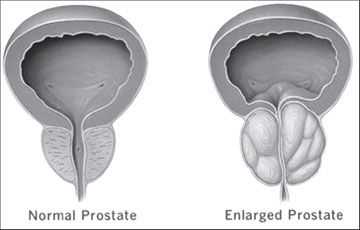|

Are men more vulnerable to ill health than women?
By Carol Aloysius
Despite their significant forward stride in education and economic
freedom, most women whether from conservative Asian cultures or the so
called progressive Western cultures, still remain socially inferior to
men. But when it comes to health, they (women) definitely have an edge
over their male counterparts - with hard facts to back up their claim.
Recent studies have revealed that previous gaps in life expectancy
between men and women have narrowed significantly today, largely due to
their access to improved health care, better nutrition and more
awareness of their own personal health issues. Yet when compared to
women, evidence has shown that men appear to be more vulnerable to poor
health than their female counterparts.
Several negative factors contribute this disparity in health between
men and women. Chief among these are certain unhealthy habits that more
men indulge in than women e.g. drinking alcohol and smoking. It has also
been said that men don’t seek medical advice as often as women, and they
work too hard and are thus subject to stress, aggravating medical
conditions they already have, such as low testosterone, erectile
dysfunction, penis disorders, prostrate cancer prostrate disease, sexual
problem and testicular cancer.
“Most men also believe they are the healthier sex and don’t need
frequent medical attention like women”, says a medical expert, who
negates that claim with recent statistics that reveal more than 100,000
men die prematurely in the United Kingdom and elsewhere in the world as
well, from diseases they can prevent.
In this interview with the Sunday Observer, Consultant Nephrologist
Anuradhapura Teaching Hospital Dr Chintana Galahitiyawa highlights some
of these common health issues in men that can be prevented, and
emphasises that early screening and detection can give them a longer,
healthier life.
Excerpts …
Question: What in your opinion are some health issues which
men should never ignore?
Answer: Let me start with prostrate problems, a common problem
men suffer from. The special gland called prostate is located at the
neck of the male urinary bladder which plays an important role in sexual
functions. In some instances, when men get older this gland tends to
enlarge and can press on the tube which carries urine from the bladder.
 This can make it hard to pass urine which can be a sign of prostate
disease, including prostate cancer. Other symptoms of prostate
enlargement are pain or burning when you pass urine and frequently
waking up in the night to pass small amounts of urine. Long standing
urine retention can lead to many health issues. Bladder wall thickening
and dysfunction can happen over the years. This can lead to loss of
bladder sensation and incontinence. Although not common, back pressure
can damage the kidneys as well. This can make it hard to pass urine which can be a sign of prostate
disease, including prostate cancer. Other symptoms of prostate
enlargement are pain or burning when you pass urine and frequently
waking up in the night to pass small amounts of urine. Long standing
urine retention can lead to many health issues. Bladder wall thickening
and dysfunction can happen over the years. This can lead to loss of
bladder sensation and incontinence. Although not common, back pressure
can damage the kidneys as well.
Q. What are the signs?
A. Loss of bladder sensation, chronic urinary retention and
incontinence are the late symptoms of neglected cases. Also watch out
for lumps in the testicle. Testicular cancer is the most common cancer
in men aged 20 to 35 years. Most testicular lumps are not cancer but
early diagnosis is essential because treatment for testicular cancer is
much more effective if the cancer is diagnosed early.
Q. What are the symptoms of testicular cancer?
A. A painless lump or swelling around one or both testicles is
the most common symptom. A dull ache in the groin or lower abdomen, pain
or discomfort in the testicle or scrotum that may be constant or
sporadic or a feeling of heaviness or pulling sensation in the scrotum
are the other less common symptoms. Sudden enlargement of the testicle
due to fluid (a hydrocele) can rarely be secondary to a testicular
cancer.
Q. Are there preventive measures to take?
A. Unfortunately, testicular cancer is a type of cancer that
can't easily be prevented. There are simply no proven prevention
methods. As with most cancers, the best method of prevention is to avoid
the risk factors. There is no way to avoid the risk factors for
testicular cancer because most are out of the person's control, such as
age, race, and conditions occurring at birth such as undescended testis,
Klinefelter’s syndrome and family history of such cancers.
Awareness of the risks and regular self examination will help the
early detection and treatment.
Q. Sometimes men pass blood in their urine. What does this
mean?
A. This alarming symptom could be due to many reasons such as
simple urinary tract infections, penile ulcers, renal stones and
prostate disease.
Kidney diseases such as polycystic kidney disease, glomerulonephritis
and cancer can also present with blood in your urine.
Q. What about blood vessel damage and heart disease? Are men
more prone to this?
A. Yes, females have some protection from their sex hormones.
But this effect is lost after the menopause. Male pattern baldness is
among the other important health issues in males. This is usually
hereditary and it starts with little thinning of the hair followed by
wider hair loss. Their hair follicles are simply over sensitive to the
hormones. Treatments may slow down the hair loss but there’s no cure.
It’s estimated that one man in 10 has a problem related to having
sex, such as premature ejaculation or erectile dysfunction. Medical
conditions such as diabetes mellitus, high blood pressure, heart
disease, high cholesterol and hormonal problems can cause erectile
dysfunction. Further, prescribed medications and alcohol can also be the
reason. Due to the multifactorial nature of the problem's it is
essential that young and middle aged men should seek medical attention
for complete evaluation and blood tests.
Q. Can medication contribute to male sexual dysfunction as
well?
A. This not an uncommon cause for erectile dysfunction. Many
commonly used medications have this side effect. These include certain
blood pressure controlling medications, drugs used to treat psychiatric
illnesses, some cholesterol lowering agents, stomach ulcer treatments,
etc.
Q. Do factors like stress and performance anxiety play a role
in relationship problems?
A. Yes. As this is a complex health issue, a careful
assessment of the patient and an individualised treatment is needed to
achieve outcomes which are satisfactory.
Q. Sub fertility is a relatively common problem among about 15
percent of couples according to studies, which show that male factors
are responsible for about 40 percent of these cases. What are the
causes? How are they treated? Do they need to undergo surgery?
 A. These include genetic causes such as Klinefelter’s
syndrome, hormonal causes, and many other miscellaneous causes such as
undiscended testes, infections, drugs, exposure to toxins and radiation,
nutritional deficiencies etc. A. These include genetic causes such as Klinefelter’s
syndrome, hormonal causes, and many other miscellaneous causes such as
undiscended testes, infections, drugs, exposure to toxins and radiation,
nutritional deficiencies etc.
Treatment will be tailored according to the underlying cause. Rarely
are these problems treated surgically.
Q. What is the role of physical activity and exercise?
A. Physical activity and exercise can help you stay healthy,
energetic and independent as you get older.
Inactivity will lead to higher rates of falls, obesity, heart disease
and early death compared to the general population.
Weekly physical activity target is to do 30 minutes on at least five
days a week. Daily chores such as shopping, cooking and housework don’t
count towards your target, because the effort isn't hard enough to raise
your heart rate.
Q. Your message?
A. If you are healthy and over 40 years, fasting lipid profile
and blood pressure assessment is recommended every five years.
Keeping your daily intake of water to 1.5 to 2.0 litres, cutting down
salt in your diet and alcohol to safer limits and stopping smoking will
simply add days to your life and add life to your days!
********************
Men's life expectancy and health risks
Sri Lankan situation: More than 80 percent of patients admitted to
Lankan hospitals suffer from smoking and alcohol related illnesses. Over
98 percent of them are males who die prematurely. Surveys carried out by
the Excise Department have revealed that 30 percent of the smokers in
the country are beedi smokers.
*********************
Consequence of alcohol consumption in Sri Lanka
Alcohol consumption is a major health and social problem in Sri
Lanka. The magnitude of the problem is reflected in the rising incidence
of,
•Hospital admissions due to alcohol related diseases such as
cirrhosis, non-communicable diseases, depression and suicide.
•Road traffic accidents, crime, violence and homicide.
•Violence and sexual abuse of women and children, especially in rural
areas.
The consumption of alcohol over a period of time leads to
deterioration of both physical and mental health, interpersonal
relationships and smooth economic and social functions.
Alcoholism also leads to deterioration of moral and spiritual
standards and often destroys family life on a drastic scale.
“The psychological aspects of alcoholism: Alcohol consumption leads
to physical and psychic dependence and development of tolerance. Alcohol
is also addictive and psychoactive like heroin and tobacco. But unlike
these which are taboo in society, alcohol is widely accepted.
*********************
What are the most common prostate problems?
For such a little gland, the prostate seems to cause a lot of
concern. Like a troubled, war-torn country, it's in the news all the
time and something always seems to be going wrong there, but you don't
really know where it is or why it's important.
All men are at risk for prostate problems. That's because all men
have a prostate. Take a look at this overview of prostate problems to
assess your risk for trouble with your prostate.
Benign prostatic hyperplasia (BPH). BPH, also known as an enlarged
prostate, is growth of the prostate gland to an unhealthy size. A man's
chances of having BPH go up with age:
• Age 31-40: one in 12
• Age 51-60: about one in two
• Over age 80: more than eight in 10
However, only about half of men ever have BPH symptoms that need
treatment. BPH does not lead to prostate cancer, although both are
common in older men.
. Prostate cancer is the most common cancer in men (besides skin
cancer). About one man in six will be diagnosed with prostate cancer in
his lifetime.
Let's keep these numbers in perspective, though. Because prostate
cancer is usually slow growing, only about one in 35 men will die of
prostate cancer.
Like BPH, the risk for prostate cancer increases with age. About two
out of every three men with prostate cancer are over 65. No one knows
exactly what causes prostate cancer, but risk factors associated with it
include:
• Family history. Having a father or brother with prostate cancer
more than doubles your risk.
• Race. African-American men are more likely to get prostate cancer
than Caucasians, and the cancer is usually more advanced when
discovered.
Prostatitis. Unlike most prostate problems, prostatitis -
inflammation or an infection of the prostate - occurs more often in
young and middle-aged men. Only 5 percent to 10 percent of men develop
prostatitis in their lifetime.
- Men’s Health
Multiple generations can inherit father's obesity
The sperm of obese fathers could increase the risk of both their
children and their grandchildren inheriting obesity, according to new
research.
 In laboratory studies, researchers from the Adelaide University's
Robinson Institute have found that molecular signals in the sperm of
obese fathers can lead to obesity and diabetes-like symptoms in two
generations of offspring, even though the offspring are eating
healthily. In laboratory studies, researchers from the Adelaide University's
Robinson Institute have found that molecular signals in the sperm of
obese fathers can lead to obesity and diabetes-like symptoms in two
generations of offspring, even though the offspring are eating
healthily.
“A father's diet changes the molecular makeup of the sperm. With
obese fathers, the changes in their sperm - in their microRNA molecules
- might program the embryo for obesity or metabolic disease later in
life,” says the lead author of the paper, Dr Tod Fullston.
“For female offspring, there is an increased risk of becoming
overweight or obese. What we've also found is that there is an increased
chance of both male and female offspring developing metabolic disease
similar to type 2 diabetes.“This is the first report of both male and
female offspring inheriting a metabolic disease due to their father's
obesity,” he says.
The study also extended into the second generation of progeny, which
showed signs of similar metabolic disorders, including obesity, although
it was not as severe as the first generation.
Dr Fullston says even if the obese father does not show any signs of
diabetes, metabolic disease similar to diabetes was being seen in two
generations of their descendants.
“It's been known for some time that the health of a mother before,
during and after pregnancy can impact on her child's health, but the
father's health during this period is often overlooked,” Dr Fullston
says.
“If our laboratory studies are translatable to humans, this could be
a new and as yet unexplored intervention window into the epidemic of
childhood obesity.“A focus on the mother's health is extremely
important, but we're seeing that the father's health is also important
for conception. It's possible that by showing additional attention to
diet and exercise in the father, this could have a positive impact on
his future children and grandchildren.
MNT
Can workplace flexibility give parents time with their children?
Parents are increasingly experiencing a ‘time squeeze’ as they
struggle to navigate the pressures of full-time employment and the
demands of caring for their children. Research in the Journal of
Marriage and Family examines if flexible working schemes are helping or
adding to this pressure.
The authors examined how the introduction of Results Only Work
Environment (ROWE) has impacted parents’ perceptions of their time.
Under this scheme employees are paid for results, rather than their
time.
The data showed that both parents saw changes in working hours such
as ROWE as a major factor to their time, yet only mothers reported
increased schedule control and improved time adequacy. However, this
change was shown to be in perception only, as little change was reported
in the actual time spent with children beyond evening meals.
“ROWE helped mothers feel that they were spending enough time with
their children, even though it didn't change the actual amount of time
for most parents,” said Rachelle Hill from the University of Minnesota.
“Mothers who participated in ROWE and ate fewer than three meals with
their children per week were able to eat one additional family meal with
their children compared to mothers in traditional departments.
- MNT
Schizophrenics likely to benefit from brain discovery
The discovery of brain impairment in mice may eventually lead to
better therapies for people with schizophrenia and majordepression.
 Studying rodents that have a gene associated with mental illness,
neuroscientist Alexander Johnson and colleagues found a link between a
specific area of the prefrontal cortex, and learning and behavioural
deficits. Studying rodents that have a gene associated with mental illness,
neuroscientist Alexander Johnson and colleagues found a link between a
specific area of the prefrontal cortex, and learning and behavioural
deficits.
While much work needs to be done, the discovery is a major step
toward better understanding mental illness. While antipsychotic drugs
can treat hallucinations related to schizophrenia, there essentially is
no treatment for other symptoms such as lack of motivation or anhedonia,
the inability to experience pleasure.
“This study may well suggest that if we start targeting these
brain-behaviour mechanisms in people with mental illness, it may help to
alleviate some of the cognitive and motivational symptoms, which to date
remain largely untreated with current drug therapies,” said Johnson, MSU
assistant professor of psychology.
The researchers conducted a series of experiments with two groups of
mice - those with the gene associated with mental illness and those
without the gene (or the control group).
In one experiment, related to cognition, the mice were presented with
tasty food when they responded on one side of a conditioning box. After
repeated feedings, the food was switched to the other side of the box.
The mice with the mental illness gene had a much more difficult time
learning to adapt to the new side.
In another experiment, related to motivation, the mice had to respond
an increasing number of times each time they wanted food. By the end of
the three-hour session, all mice with the mental illness gene stopped
responding for food, while half of the control group continued on.
- MNT
|


